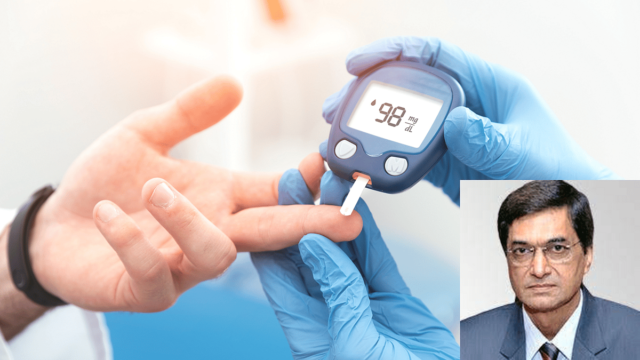Bhopal (Madhya Pradesh): Diabetologist Dr Sushil Jindal has raised concern over low survival rate of children suffering from Type-1 diabetes, especially in rural areas where medical facilities are inadequate. In an exclusive conversation with Free Press Journal, Dr. Jindal discusses the challenges, misconceptions and the importance of proper diabetes management.
Why are children increasingly suffering from diabetes?
Children with Type-1 diabetes experience degeneration of pancreatic cells, which stops insulin production. As a result, their blood sugar levels remain dangerously high. Though Type-2 diabetes is more common, around 5-10% of all diabetes cases are Type-1, mostly in children. The biggest challenge is convincing parents to accept lifelong insulin support for their kids. Many parents refuse, which often leads to fatal consequences.
How low is the survival rate for kids with Type-1 diabetes?
The survival rate is extremely low due to severe complications like hypoglycaemia and diabetic ketoacidosis (DKA). Early diagnosis and insulin access are crucial, but in rural areas, children often die young due to the lack of insulin, blood glucose monitoring equipment, and even refrigeration facilities for storing insulin.
How should people manage Type-2 diabetes?
Type-2 diabetes occurs when the body can’t use insulin properly. Without treatment, it can lead to serious health risks like heart disease, kidney disease and stroke. Managing it requires lifestyle changes, medications and regular check-ups. Exercise, a controlled diet and obesity management are key. People should never stop their medication and must stay active.
There’s a common belief that diabetes medications damage organs. Is this true?
No, this is a complete misconception. Diabetic complications, not the medications, cause chronic kidney disease, nephropathy and renal failure. In fact, some diabetes drugs actually reduce the risk of these complications. Stopping medication can accelerate diabetes-related damage.
How should diabetic patients deal with acidity and stomach issues?
Regulating diet and maintaining an active lifestyle is the best approach. If acidity persists, mild antacids can help, but people should not disrupt their medication routine. Staying hydrated also helps control acidity in diabetic patients.
















































